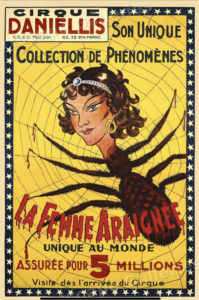 It’s a good time to be a pundit trying to find a vein of gold that explains the polarization of modern America. Is it political, societal, sociological, psychological, economic, or some mixture of all of the above? Take David Brooks’ new Atlantic essay on bobos and boubours. Here we have modern politics emerging from social, economic, and meritocratic trends that build on his riff on Richard Florida’s ideas of the creative class in the early 2000s. I’ll sum it up as simply as I can, though I also want to touch on why it seems flawed to me. But here we go:
It’s a good time to be a pundit trying to find a vein of gold that explains the polarization of modern America. Is it political, societal, sociological, psychological, economic, or some mixture of all of the above? Take David Brooks’ new Atlantic essay on bobos and boubours. Here we have modern politics emerging from social, economic, and meritocratic trends that build on his riff on Richard Florida’s ideas of the creative class in the early 2000s. I’ll sum it up as simply as I can, though I also want to touch on why it seems flawed to me. But here we go:
- An intellectual elite arose that controls media, educational opportunities, technology, and culture (the “bobos” for bourgeois bohemian).
- Our politics (and some international as well: Marine Le Pen, Boris Johnson, etc.) reflect a backlash against these new overlords by the “boorish bourgeoisie” (boubours) who see their political voices suffocated in this new class order.
- Maybe if we mixed together a bit more we can reduce the temperatures and empathize with one another better.
OK, so Brooks is on that solution bandwagon that always reaches for more social integration to solve all ills. It is positive and very bobo (I doubt he would disagree given his self-confessional acknowledgement of his own status as part of the creative class in the article.) We have seen calls for less assortative mating, more bipartisan dinner parties for congresspeople, and other ideas in the past.
All very positive, agreed.
But what if the real problem is more sinister? How about the idea that many people are being manipulated by con artists with respect to the things that should matter to them? This is more “What’s the Matter with Kansas” but as projected by media tycoons on the right who simply see an opportunity. The grift is hard to get away from because it is embedded in the social fabric of local communities. Everyone is mad and finding ideological enemies; maintaining one’s status within the community requires conformity. The most existentially compelling example is people disguising themselves to get COVID vaccines so they won’t be antagonized by their families, bosses, and peers.
Brooks clearly likes his intellectual class snobbery argument. Italian meats and cheeses were a recent focus for him. But this may be a bit of a misunderstanding of the urban/rural divide. Most rural areas have some unique cuisine, some distinguishing food or cultural background that sets them apart from others, be they New Mexico’s take on Mexican food where I live, or the crab season in Maryland, or the geoducks in Seattle. There is as much intellectual depth in moles as in mother sauces.
But, to be fair to Brooks, it is the openness to new experiences and the desire to seek them out that is the distinguishing difference for the bobo. I would also argue that the cosmopolitan appreciation of differences and creativity is a virtue that is at odds with sameness and racial, economic, intellectual, religious, and social conformity. But amplifying the angst over the appeals of that virtue is not something that is innate to red America. They are being grifted by a crass social elite to maintain and foster values and political goals at odds with their own survival and the future of democracy. And we should all be angry about that and less about mortadella.